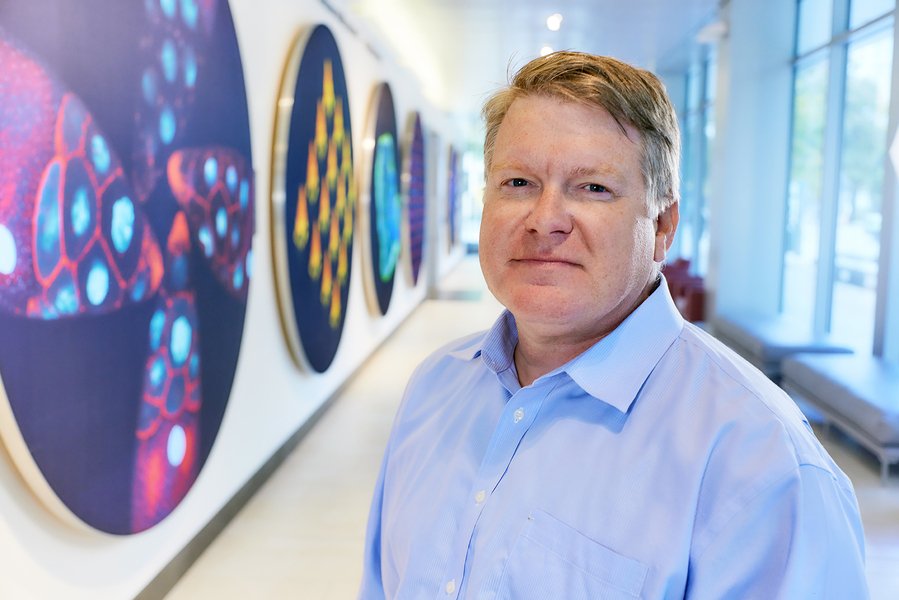January Bulletin
Issue 88
Community Notices
January Research seminar
Next Marble Center seminar is on Monday January 22 (4-5pm, Luria Auditorium) with a research update by Dr. Yanpu He of the Belcher lab on “Detoxifying M13 phage for therapy and diagnosis.” Following the talk, we will host a hot topic discussion by Dr. Susanna Elledge (Bhatia Lab) on algorithmic fairness in artificial intelligence for medicine and healthcare.
Watch Dr. Angela Belcher’s 2023 Dresselhaus Lecture on evolving organisms for new nanomaterials
In the News
Inhalable sensors could enable early lung cancer detection
(Anne Trafton | MIT News) Using a new technology developed at MIT, diagnosing lung cancer could become as easy as inhaling nanoparticle sensors and then taking a urine test that reveals whether a tumor is present. The new diagnostic is based on nanosensors that can be delivered by an inhaler or a nebulizer. If the sensors encounter cancer-linked proteins in the lungs, they produce a signal that accumulates in the urine, where it can be detected with a simple paper test strip.
This approach could potentially replace or supplement the current gold standard for diagnosing lung cancer, low-dose computed tomography (CT). It could have an especially significant impact in low- and middle-income countries that don’t have widespread availability of CT scanners, the researchers say. “Around the world, cancer is going to become more and more prevalent in low- and middle-income countries. The epidemiology of lung cancer globally is that it’s driven by pollution and smoking, so we know that those are settings where accessibility to this kind of technology could have a big impact,” says Sangeeta Bhatia, the John and Dorothy Wilson Professor of Health Sciences and Technology and of Electrical Engineering and Computer Science at MIT and a member of MIT’s Koch Institute for Integrative Cancer Research and Institute for Medical Engineering and Science. Read more…
Small science, big impact on the U.S. economy
An independent study focusing on the aggregated revenues of a select list of nanotechnology companies has estimated that the 2022 economic impact of nanotechnology on the U.S. economy was between $67 billion and $83 billion and close to a trillion dollars over the past two decades . This dwarfs the U.S. Government’s investment of around $40 billion over that same timeframe, which corresponds to the nation’s prioritization of the field through the National Nanotechnology Initiative (NNI).
Nanoparticle-delivered RNA reduces neuroinflammation in lab tests
(David Orenstein | Picower Institute) Some Covid-19 vaccines safely and effectively used lipid nanoparticles (LNPs) to deliver messenger RNA to cells. A new MIT study shows that different nanoparticles could be used for a potential Alzheimer’s disease (AD) therapy. In tests in multiple mouse models and with cultured human cells, a newly tailored LNP formulation effectively delivered small interfering RNA (siRNA) to the brain’s microglia immune cells to suppress expression of a protein linked to excessive inflammation in Alzheimer’s disease.
In a prior study, the researchers showed that blocking the consequences of PU.1 protein activity helps to reduce Alzheimer’s disease-related neuroinflammation and pathology. The new open-access results, reported in the journal Advanced Materials, achieves a reduction in inflammation by directly tamping down expression of the Spi1 gene that encodes PU.1. More generally, the new study also demonstrates a new way to deliver RNA to microglia, which have been difficult to target so far.
Study co-senior author Li-Huei Tsai, the Picower professor of neuroscience and director of The Picower Institute for Learning and Memory and Aging Brain Initiative at MIT, says she hypothesized that LNPs might work as a way to bring siRNA into microglia because the cells, which clear waste in the brain, have a strong proclivity to uptake lipid molecules. She discussed this with Robert Langer, the David Koch Institute Professor, who is widely known for his influential work on nanoparticle drug delivery. They decided to test the idea of reducing PU.1 expression with an LNP-delivered siRNA. Read more…
3 Questions: Darrell Irvine on making HIV vaccines more powerful
An MIT research team led by Professor Darrell Irvine has developed a novel kind of vaccine adjuvant: a nanoparticle that can help to stimulate the immune system to generate a stronger response to a vaccine. An HIV vaccine that includes this adjuvant will be tested in clinical trials this month. COURTESY OF STEVE BOXALL.
(Anne Trafton | MIT News) An MIT research team led by Professor Darrell Irvine has developed a novel kind of vaccine adjuvant: a nanoparticle that can help to stimulate the immune system to generate a stronger response to a vaccine. These nanoparticles contain saponin, a compound derived from the bark of the Chilean soapbark tree, along with a molecule called MPLA, each of which helps to activate the immune system.
The adjuvant has been incorporated into an experimental HIV vaccine that has shown promising results in animal studies, and this month, the first human volunteers will receive the vaccine as part of a phase 1 clinical trial run by the Consortium for HIV/AIDS Vaccine Development at the Scripps Research Institute. MIT News spoke with Irvine about why this project required an interdisciplinary approach, and what may lie ahead. Read the Q/A.
Jobs
Senior Scientist, LNP Process Development, Earli Inc..
Earli Inc. is seeking a high-caliber Senior Scientist for LNP Process Development and Manufacturing in the Delivery team. The candidate will use their expertise in Lipid Nanoparticle (LNP) scale-up and process development to establish robust processes and assays for producing high-quality Research-Grade LNP batches of an existing proprietary LNP formulation at 50 milligram to >1 gram scale for animal studies. Read more…
Assistant Professor, Biomedical Engineering, Stony Brook University.
The Department of Biomedical Engineering (BME) of Stony Brook University invites applications for a tenure-track position at the Assistant Professor level. BME faculty work closely with several excellent departments within Stony Brook University, including Chemistry, Neurobiology and Behavior, Psychology, Physics, Computer Science, Electrical and Computer Engineering, and Mechanical Engineering. Further, BME has strong ties with Stony Brook Medicine, the largest academic medical center in Suffolk County, NY, home to 1.8 million people. Collaboration with Stony Brook Medicine provides access to numerous clinical populations and clinicians across many specialties. Further fostering this collaboration, the position is funded through the Renaissance School of Medicine. Read more…
Funding opportunities
| Funding Source | Grant ID | Deadline | AACR Clinical Oncology Research (CORE) Training Fellowship | N/A | February 29, 2024 | The Mark Foundation Endeavor Award | N/A | March 12, 2024 |
|---|






